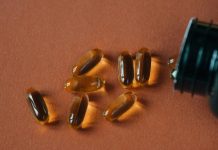
Parkinson’s disease, a neurodegenerative disorder that affects movement, has long been a puzzle for both those living with it and the medical community seeking to provide relief.
While there’s no cure yet, managing symptoms and improving quality of life remain the primary goals.
In this landscape of care, dietary supplements have emerged as potential allies, offering a glimmer of hope and additional support.
This piece delves into the current understanding of supplements in managing Parkinson’s disease, aiming to illuminate this complex topic with clear and empathetic language.
Parkinson’s disease gradually impairs motor function, leading to symptoms like tremors, stiffness, and balance problems.
It’s caused by the death of nerve cells in the brain that produce dopamine, a chemical messenger crucial for coordinating movement.
The question then arises: can dietary supplements, in conjunction with traditional treatments, offer additional benefits?
Coenzyme Q10 (CoQ10) has been spotlighted in Parkinson’s research. This antioxidant is naturally produced by the body and is essential for cells to function correctly.
Studies have explored CoQ10’s potential to slow the progression of Parkinson’s disease, with some early research suggesting it could help improve symptoms due to its role in energy production and protecting cells from oxidative damage.
However, results are mixed, and more comprehensive studies are needed to firmly establish its effectiveness.
Omega-3 fatty acids, found in fish oil, are known for their anti-inflammatory properties and their role in brain health. While research directly linking omega-3s to improved Parkinson’s symptoms is limited, their overall benefits for brain function and protection make them a topic of interest for further study.
Vitamin D deficiency has been observed in many individuals with Parkinson’s disease. This vitamin, primarily obtained from sunlight exposure and certain foods, is essential for bone health, immune function, and brain health.
Some studies have found that higher levels of vitamin D are associated with a lower risk of Parkinson’s and may help manage symptoms in those already diagnosed.
However, the relationship between vitamin D supplementation and Parkinson’s symptom management requires more robust evidence.
Creatine, a compound often associated with muscle strength and athletic performance, has also been investigated for its potential in Parkinson’s disease management.
Creatine’s ability to increase energy availability in cells might offer benefits in neurodegenerative diseases, including Parkinson’s.
Yet, despite some promising early findings, subsequent research has provided mixed outcomes regarding its efficacy in significantly impacting disease progression or symptom relief.
Curcumin, the active compound in turmeric, has anti-inflammatory and antioxidant properties that make it another compound of interest. Preliminary studies suggest it might protect brain cells and improve symptoms due to its anti-inflammatory effects.
However, as with many supplements, conclusive evidence supporting its use specifically for Parkinson’s disease is still under development.
It’s important to emphasize that while supplements can offer potential health benefits, they should not replace conventional treatments for Parkinson’s disease.
The effectiveness and safety of supplements can vary, and interactions with prescribed medications are a concern. Therefore, it’s crucial for individuals with Parkinson’s to consult with healthcare providers before adding any supplements to their regimen.
In conclusion, the journey through Parkinson’s disease is uniquely challenging, with each person seeking paths that offer the most promise for symptom management and quality of life improvements.
Supplements represent a hopeful avenue for additional support, with ongoing research continually shedding light on their potential roles.
As we navigate this evolving landscape, the key is to stay informed, consult healthcare professionals, and approach each option with both hope and a critical eye, always prioritizing safety and evidence-based choices.
If you care about Parkinson’s disease, please read studies that Vitamin B may slow down cognitive decline, and Mediterranean diet could help lower risk of Parkinson’s.
For more information about brain health, please see recent studies that blueberry supplements may prevent cognitive decline, and results showing Plant-based diets could protect cognitive health from air pollution.
Copyright © 2024 Knowridge Science Report. All rights reserved.



